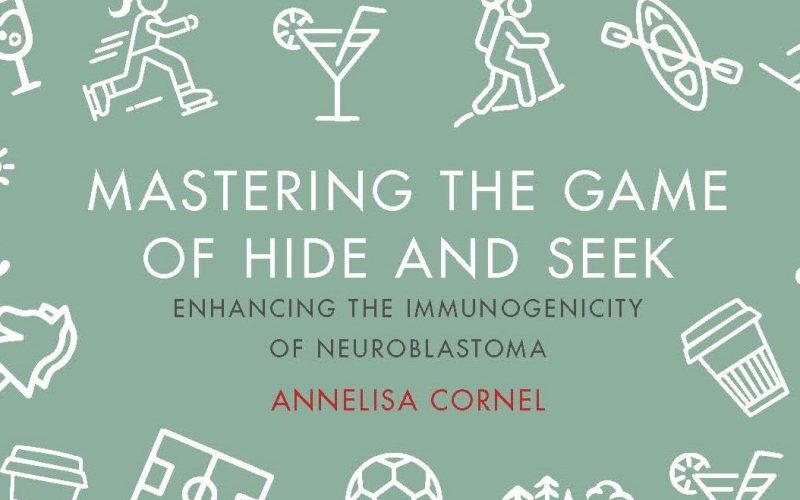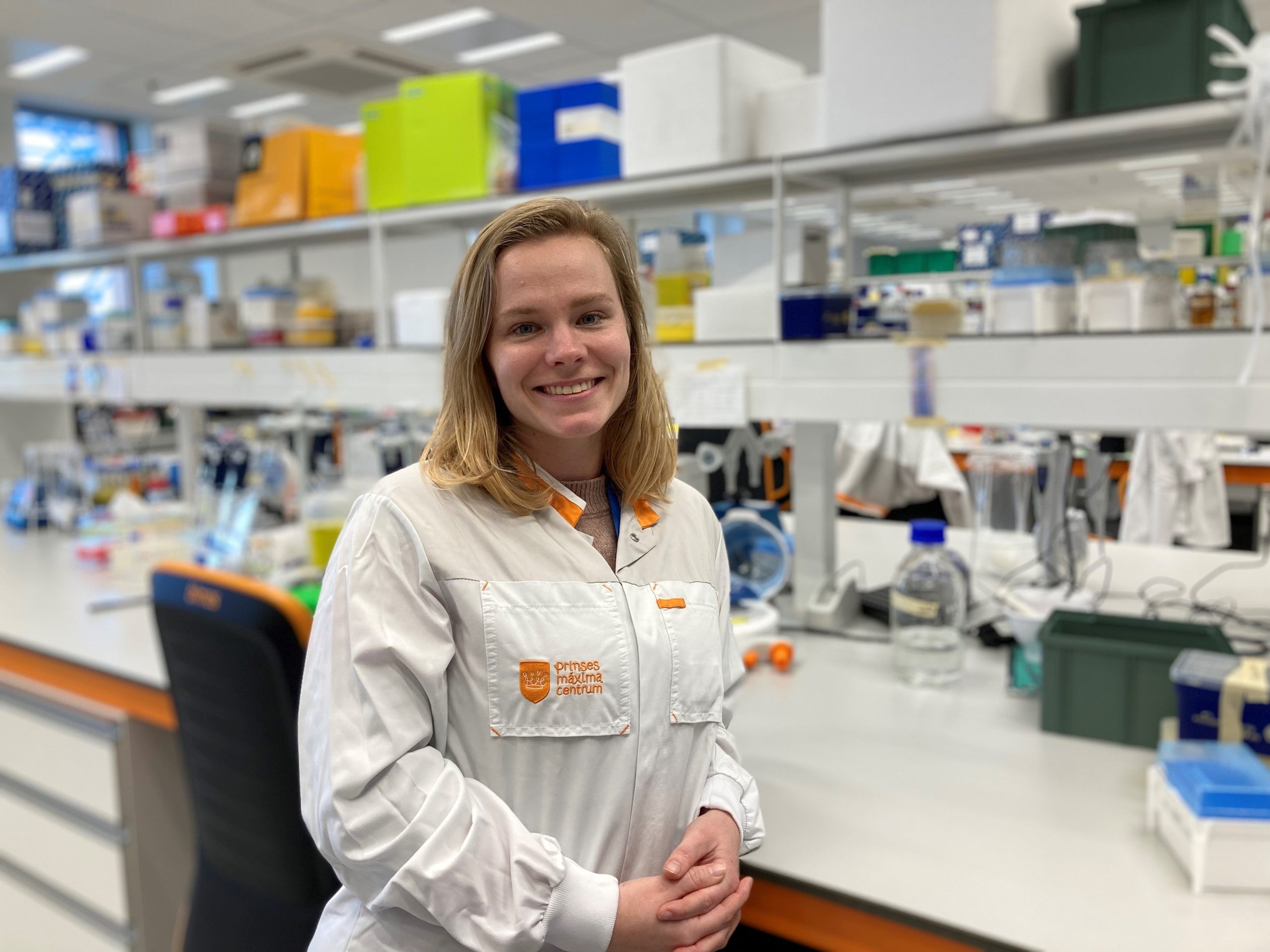Neuroblastoma tumor cells are not well recognized by the immune system of children with a high-risk variant of this form of childhood cancer. PhD student Annelisa Cornel (UMC Utrecht and Princess Máxima Center, Utrecht) identified an existing drug – entinostat – that might change this. On February 16, 2023 Cornel received her doctoral degree.
Each year, ten to fourteen children are diagnosed with the high-risk variant of neuroblastoma. About half of these children do not recover. Research into new treatment options is therefore of great importance. The neuroblastoma cells are so-called embryonic tumor cells, formed when the child was still in the mother’s womb. Annelisa Cornel (Center for Translational Immunology, UMC Utrecht and Princess Máxima Center, Utrecht) explains: “Normally, these cells mature and disappear. However, sometimes this goes wrong and the cells remain in the body. Because they don’t belong here, they miss recognition points for the immune system and grow uninhibited.”
Previous research showed that with the help of cytokines, small substances that pass signals between cells, the MHC-I recognition point for immune cells appears on the cells. This ‘flag’ on the cell is important for T cells, which not only replenish cancer cells, but also create immunological memory through recognition. This ‘memory’ ensures that remaining tumor cells can still be cleared by the immune system months to years later, thereby preventing cancer recurrence. However, these cytokines have many side effects. Cornel therefore went in search of another, less harmful drug with the same effect. “Using robots at the Princess Máxima Center and at UMC Utrecht, I tested the effect of more than 5,000 existing drugs on tumor cells. One group of drugs, the histone deacetylase inhibitors, all kinds of immunological landmarks, including MHC-I, appear. By then looking at the amount of proteins that appeared for each drug, I was able to identify Entinostat as an interesting candidate.”
Immune cells know when to act because they recognize ‘flags’ on tumor cells. The presence of these immunological landmarks is therefore necessary to optimize immunotherapy with, for example, adapted T cells, such as CAR-T and TCR T cells, and antibodies as treatment. These types of treatments using one’s own immune system are very hopeful because of their targeted attack and limited side effects. “The neuroblastoma tumor cells are currently still poorly recognizable, especially for T cells. As a next step, therefore, I would like to investigate the effect of Entinostat in combination with various existing and new types of cell therapies. Interesting candidates of immune cells do eventually need to be programmed to recognize neuroblastoma cells. This would then be done in the clean rooms being built thanks to Mission 538, a funding event from Dutch radio station Radio 538.”
Annelisa Cornel, PhD, in the Nierkens lab at the Princess Máxima Center
Cornel is part of Dr. Stefan Nierkens’ research group and works in his groups at both the Princess Máxima Center and UMC Utrecht. She also collaborates with various research groups within the Máxima: “For my experiments, I made extensive use of neuroblastoma organoids, a kind of mini-tumors, developed by the Molenaar group. I am also working with the Van Heesch group on a project to use new, advanced techniques to find additional tumor-specific targets to develop new, improved immunotherapies in the future.”
Annelisa Cornel (1993, Harlingen) defended her PhD thesis on February 16, 2023 at Utrecht University. The title of her thesis was “Mastering the game of hide and seek – Enhancing the immunogenicity of neuroblastoma.” Supervisor was dr. Stefan Nierkens (Center for Translational Immunology, UMC Utrecht and Princess Máxima Center, Utrecht). Co-supervisor was dr. Miranda Dierselhuis (Princess Máxima Center, Utrecht). In July 2022, Annelisa joined the Nierkens/Lindemans research group as a postdoctoral researcher in pediatric immunotherapy development. Annelisa Cornel’s research was made possible thanks to funding from Villa Joep.

